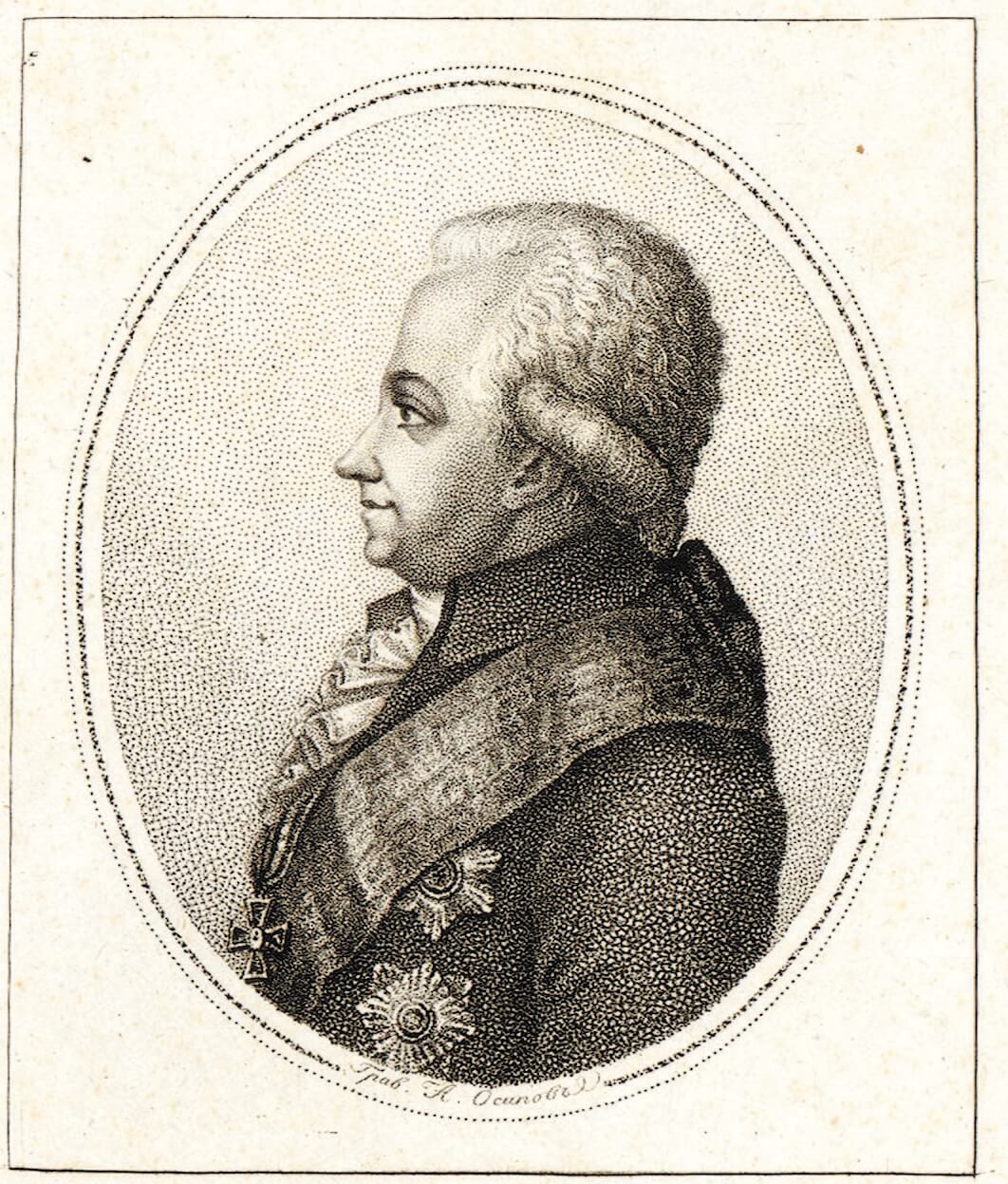
and send us a message.
Thank you for your help!
Iakov Ivanovich Bulgakov
He was born into the family of the secretary of the Preobrazhensky Prikaz (Chancellery). He studied at the gymnasium of Moscow University (1755); after graduation (1759) he entered the University. In 1760-1761 in the magazine 'Useful Amusement' he published a number of prose translations from Latin and French, as a beginner. In 1761 he joined the Collegium of Foreign Affairs. He worked as an interpreter under plenipotentiary minister in Poland, Nikolai Repnin (1763), then as a secretary (1764) and advisor (1768) at the Russian Embassy in Warsaw, as ambassador extraordinary in Constantinople (1781), as ambassador in Warsaw (1790). After Paul I ascended the throne, he was appointed governor of Vilna and Kovno. He translated Matteo Maria Boiardo's poem "Roland in Love" (“Vliublennyi Roland”) (1777-1778, 2nd edition 1799) into prose from the French prose translation by Alain-René Lesage. After the 1770s he was involved in translating Abbé de la Porte's “The World Traveler” (“Vsemirnyi puteshestvovatel”) (1778-1794, 2nd ed. 1780-1786, 3rd ed. 1800-1816). He wrote in French "Mémoire sur la révolution de Pologne" (1792), translated into Russian under the title “Zapiski o nyneshnem vozmushchenii Polshi” (1792). He made a translation of Michel François Dandre-Bardon's work "Customs of ancient peoples" (“Obrazovanie drevnikh narodov”) (1795-1796) by order of Catherine II.
Source












